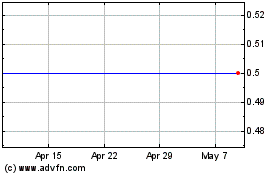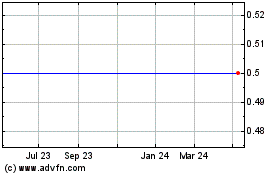AUGA group, AB and its subsidiaries will apply sustainability standards not only in organic farms
08 August 2023 - 12:01AM

AUGA group, AB and its subsidiaries will apply sustainability
standards not only in organic farms
AUGA group, AB and its subsidiaries
(hereinafter – the Group) consistently implement the objectives set
out in the strategy to develop sustainable agricultural
technologies and apply them on farms in a cooperative principle,
thus reducing emissions from agriculture. To increase the scale of
impact, the Group will start implementing more sustainable
practices in regenerative conventional agriculture by converting a
part of the Group's organic lands into conventional ones.
Additionally, the Group will invite all farmers to join the
sustainable farming community. This will ensure a greater expansion
of AUGA's sustainable farming standard and significantly reduce
agricultural emissions not only in organic but also conventional
farms. It is also expected to improve the Group's financial results
and provide greater scaling opportunities.
The Group has been a deeply committed pioneer on
the sustainable side of agriculture for many years and has been
preparing to expand its footprint internationally to the widest
possible audience.
“We are developing innovative emission-reducing
technologies such as biomethane and electric powered tractor AUGA
M1, and the AUGA sustainable farming standard. We have established
11 cooperatives and will invite farmers to join and work in the
AUGA way. However, we are seeing a trend of organic farmland
decreasing in Lithuania, and agricultural policy is increasingly
focused on greening conventional farms rather than developing
organic ones. To achieve the goals, set out in the strategy
and to solve the problem of emissions from the whole agricultural
sector, we can no longer continue to work only in the niche market
of organic farming, which in Lithuania accounts for only 8% of the
total cultivated land area," says Kęstutis Juščius, CEO of AUGA
group, AB.
Kęstutis Juščius adds that by attracting not
only organic but also conventional farms and applying technologies
and work methods, the Group will expand the scope of its
operations, have a much greater impact on emissions, and also
achieve better financial results.
“Moreover, we see a significant market demand
for producing products with lower emissions in all product
categories. We will meet this need by supplying more sustainable
raw materials to food processors and manufacturers in much larger
markets than we have been able to do so far. AUGA branded
end-consumer-products such as dairy, oat flakes, porridges, and
vegetables will remain organic, made from raw materials grown in
AUGA organic farms," says Kęstutis Juščius, CEO of AUGA group,
AB.
According to the Agricultural Data Centre, the
area of organic farms in Lithuania decreased by 18% in 2023. As the
number of organic farmers decreases, it would be difficult to
achieve the development of the AUGA sustainable farming standard
and reduce emissions from the agricultural sector's production.
Moreover, there has been volatility in organic commodities’ prices
in the main markets of the Group.
Therefore, this step to develop organic and
regenerative conventional agriculture at the same time will allow
the Group to diversify markets risks, reduce income volatility
caused by the result of climate change, and lay the foundation for
future growth. The Group also anticipates that due to increased
efficiency and better land utilization, it will be able to improve
financial results.
The main sources of emissions in both organic
and conventional agriculture are the use of fossil fuels, emissions
from the soil, and internal fermentation processes in livestock.
The Group is implementing a strategy to reduce emissions by
replacing fossil fuels in agricultural machinery with biomethane
produced from livestock and crop residues, by applying regenerative
crop rotation and using specialised feed for cattle. These
practices and technologies will also be applied on conventional
farms.
"The Group's strategic goal remains unchanged -
to achieve climate neutrality by 2030. In the short term, emissions
per tonne of production can be improved due to increased
efficiency. The Group's strategy foresees that sustainable
agriculture technologies and know-how will be shared with farmers
on a cooperative principle. We have already taken the first steps
by establishing cooperatives across Lithuania. We will have enough
arable land to meet the demand for organic products. The main
activity of the Group remains organic farming and the production of
more sustainable organic products," says Kęstutis Juščius.
CEO of AUGA group, ABKęstutis Juščius+370 5 233
5340
Auga Group Ab (LSE:0IR4)
Historical Stock Chart
From Apr 2024 to May 2024

Auga Group Ab (LSE:0IR4)
Historical Stock Chart
From May 2023 to May 2024
